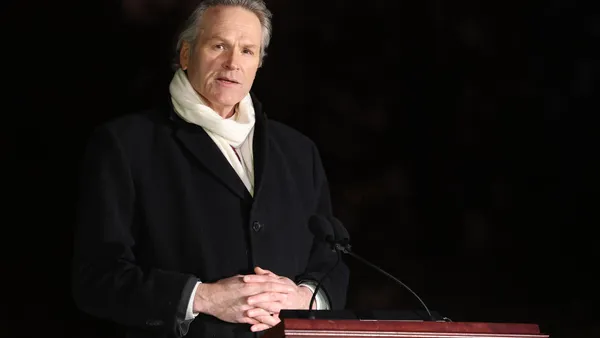Ken Wallace is in his 12th year as superintendent of Maine Township High School District 207 in Illinois.
Imagine a district in which every teacher is coached every year by a teaching peer, not to evaluate but to elevate each educator’s understanding and application of learning science, as well as evolve assessment to enhance student outcomes at the individual level.
Think personalized performance coaching at scale, for when we elevate each person’s performance across our schools, we elevate the schools and provide the very learning conditions that research confirms will lead to the very best student learning outcomes. Taken together, there is perhaps no way to approach the research idea of "collective efficacy" in our schools without a true "all-in" design for continued adult learning.
Maine Township High School District 207 has developed an “all-in” coaching model for its 500 teachers, now in its seventh year.
At our best, we are on a journey to wherever “there” is — a little better every day, individually and collectively. We have worked to not only end practices that kept our traditionally underserved students away from our most challenging courses, including college courses, but to also evolve tiered systems of support to be responsive and nimble — beginning at the teacher level to apply an array of strategies and opportunities to learn and grow so students themselves understand the very learning designs present to help elevate their learning in a visible way.
Despite a student poverty rate that has tripled and growth of non-White student population since the turn of the 21st century, our student performance has never been higher in District 207, and for that the credit goes to a continually improving adult learning program centered around individual coaching.
Our coaches teach half-time and coach half-time. We have five teachers in each building who are exclusively “instructional coaches,” along with other teachers who lead adult learning in high-impact instructional strategies including cooperative learning, differentiation, assessment literacy, academic vocabulary, equity, social-emotional learning and tiered systems of support, to name a few.
Here are five pieces of advice for anyone wanting to really develop their adult learning programs to become the very best school you can:
-
It’s always about the students. But designing adult learning to drive student learning is the path to truly creating the conditions to sustain improved student learning.
Here’s why: In any school, students flow through year to year, but teachers stay year after year — often in the same spot in the same class with the same age group of students. Traditional school structures too often have not been designed to promote continuous adult learning, but to stagnate it. -
Empower teachers to actively lead. I’ve always channeled the famous William Glasser quote about how much more we remember when we teach something than when we passively acquire information. Virtually every teacher got significantly better at their subject matter the moment they began teaching than they were before that.
The very same thing happens when adults get to lead professional development. We literally design adult learning paths to try to provide opportunities for each adult to lead. -
Turn classrooms into laboratories. This creates places where observation for learning occurs ubiquitously in the school’s landscape. Our newest coaching path is a partnership with Northwestern and National Louis (universities) in which our teachers train to coach student teachers so their annual plan is to coach an aspiring teacher.
What our teachers report through this experience is what building coaches report: Becoming an adult leader/mentor grows one's personal practice. -
Take it to scale. When we began coaching, the conventional wisdom was teachers should want to be coached rather than compelled to. Most experts at that time wrote or spoke to this viewpoint, which is understandable. But consider the privileged place educators occupy at the center of learning, which is not a place of stasis but of movement.
As noted coaching expert Diane Sweeney says, “An opt-in model is also an opt-out model.” Because we began our formal training with Jim Knight, we focused first on relationship building since our first year of "all-in" coaching coincided with Race to the Top and the rewriting of teacher evaluations to be more rigorous and grounded in evidence.
By focusing on growth and relationships, even teachers who were resistant have had breakthroughs and improved their practice. -
Keep learning. If the point of everything in schools is about creating a learning culture, schools will find the more they practice the learning cycle, embrace failure as part of that, lower the cost of failure and embrace learning for the sake of learning, then that can and does become the landscape.
We are able to tackle ideas at scale now that we never could have 10 years ago because our teachers have years of experience leading a true professional learning culture.












